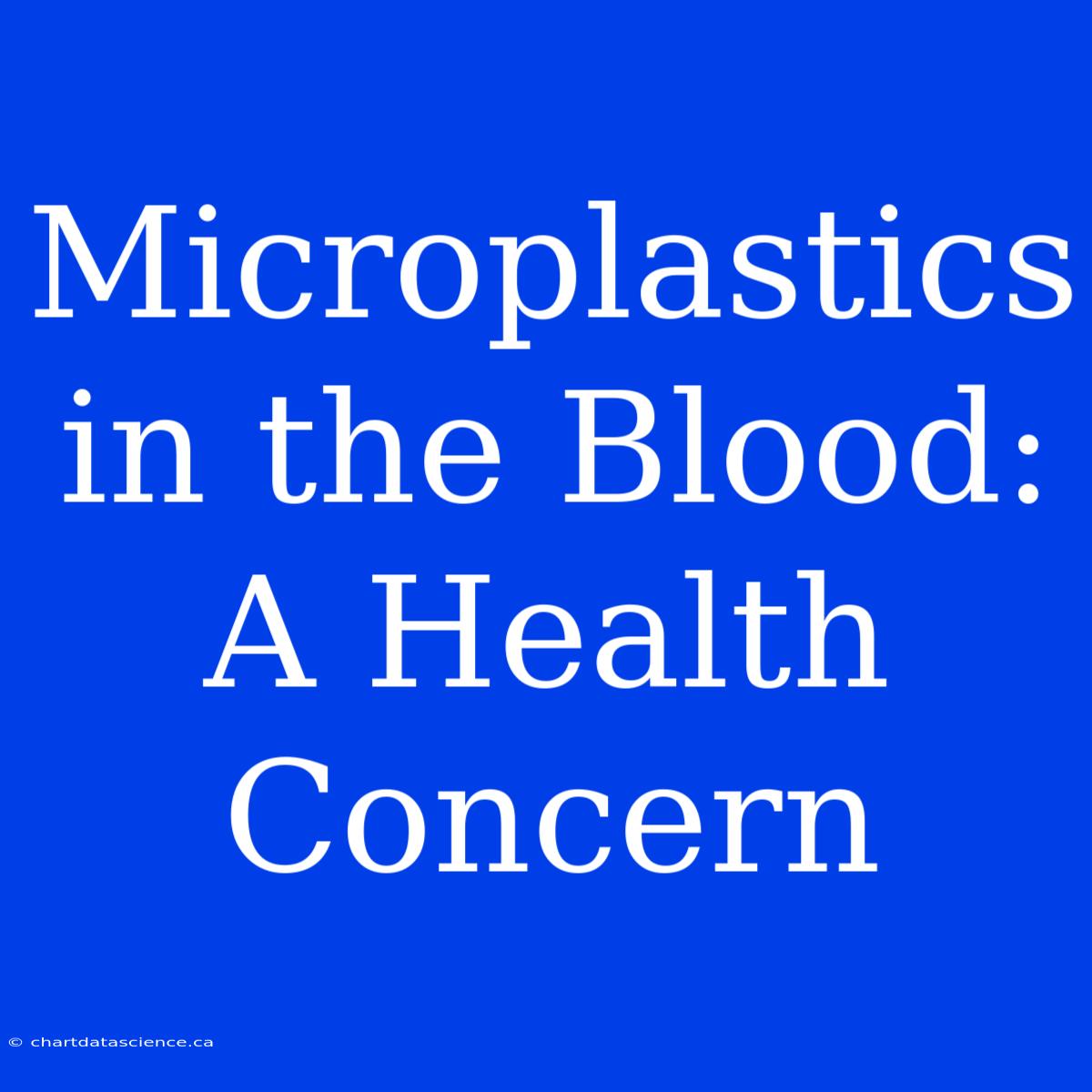Microplastics in the Blood: A Health Concern
You might be thinking, "Microplastics? In my blood? That's crazy!" But sadly, it's not. Scientists have discovered that microplastics, tiny plastic particles less than 5 millimeters in size, have been found in human blood. This discovery has sent shockwaves through the scientific community, raising serious concerns about the potential health effects of these ubiquitous pollutants.
What are Microplastics and How Do They Get Into Our Bodies?
Microplastics are everywhere – in the air we breathe, the water we drink, and the food we eat. They come from a variety of sources, including plastic packaging, clothing, and even car tires. These tiny particles break down from larger plastic items over time, eventually entering our bodies through ingestion or inhalation.
While the exact mechanisms of microplastic absorption into the bloodstream are still being researched, it's believed that they can pass through the gut lining, enter the lungs, or even penetrate the skin. This raises the question: what are the potential health risks of having these foreign materials circulating in our blood?
The Unknown Risks of Microplastics in Blood
Unfortunately, the long-term health effects of microplastics in human blood are still largely unknown. However, studies are starting to shed light on potential risks. Some research suggests that microplastics can trigger inflammation and oxidative stress, potentially contributing to chronic diseases like heart disease, diabetes, and cancer. They may also interfere with hormone function and even affect the immune system.
What Can We Do About It?
While the scientific community is still working to understand the full impact of microplastics on human health, there are steps we can take to minimize our exposure.
- Reduce single-use plastic: Opt for reusable bags, water bottles, and containers.
- Choose sustainable products: Look for products made from recycled materials or without plastic packaging.
- Wash your hands thoroughly: Microplastics can cling to our hands, so proper handwashing is essential.
- Support policies: Advocate for policies that limit plastic production and promote responsible waste management.
Microplastics in the blood is a complex issue with serious implications. While more research is needed to fully understand the risks, it's clear that we need to take action to protect ourselves and the environment from the pervasive effects of these tiny plastic particles.

